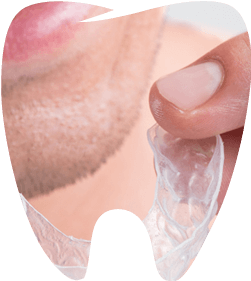Non-Surgical Root Canals in Glendale, AZ
When your tooth is causing you problems, including toothaches at the most inopportune of moments, you may be tempted to do away with it once and for all. Extraction, while being a permanent solution, should never be the first option. Here at Dobra Dental, we encourage our patients to consider alternative treatments that don’t include tooth loss. Top on the list of dental procedures we recommend for a damaged tooth is root canals. Root canal treatments come in two forms—surgical and non-surgical.
As the names suggest, these two types of therapies differ based on the absence or presence of a surgical component.
A non-surgical root canal is a minimally invasive endodontic treatment that involves drilling, cleaning, and filling a damaged tooth. Non-surgical root canals in Glendale, AZ, may be used for the initial treatment or as an endodontic retreatment option.
What Happens During a Non-Surgical Root Canal?
Non-surgical root canals are performed under anesthesia to ensure the patient is comfortable and relaxed. Our dentist will administer local anesthesia, with the option of sedation dentistry, before getting started on the treatment procedure.
The treatment procedure involves removing the damaged or decayed parts of the tooth as well as cleaning out the cavity left behind. This treatment process is similar to what would happen when you’re getting a dental filling, except in this case, our dentist in Glendale, AZ, will go further to access the root canals. That’s why it’s called a root canal treatment—because the dentist cleans out the root canals of the tooth. The root canal part of your tooth contains nerves and pulp-tissue.
After cleaning, our dentist seals the tooth to prevent re-infection. You may require a permanent crown if your tooth is extensively damaged.
Who Can Get Non-Surgical Root Canals?
Our dentist may recommend non-surgical root canals if you have tooth damage that cannot be corrected using a simple dental filling. Before determining your eligibility for the same, our dentist will thoroughly examine you and take dental x-rays to assess the state of your tooth.
Some signs and symptoms that point to the need for a root canal include sensitivity to heat and cold, darkening or discoloration of your tooth, persistent tooth pain, and a significant cavity.
In cases where decay or damage has extended to your tooth roots, our dentist may recommend a surgical root canal or an apicoectomy.
Are you looking to explore your options in non-surgical root canals near you? Reach out to Dobra Dental today to book a consultation with our dentist.

















